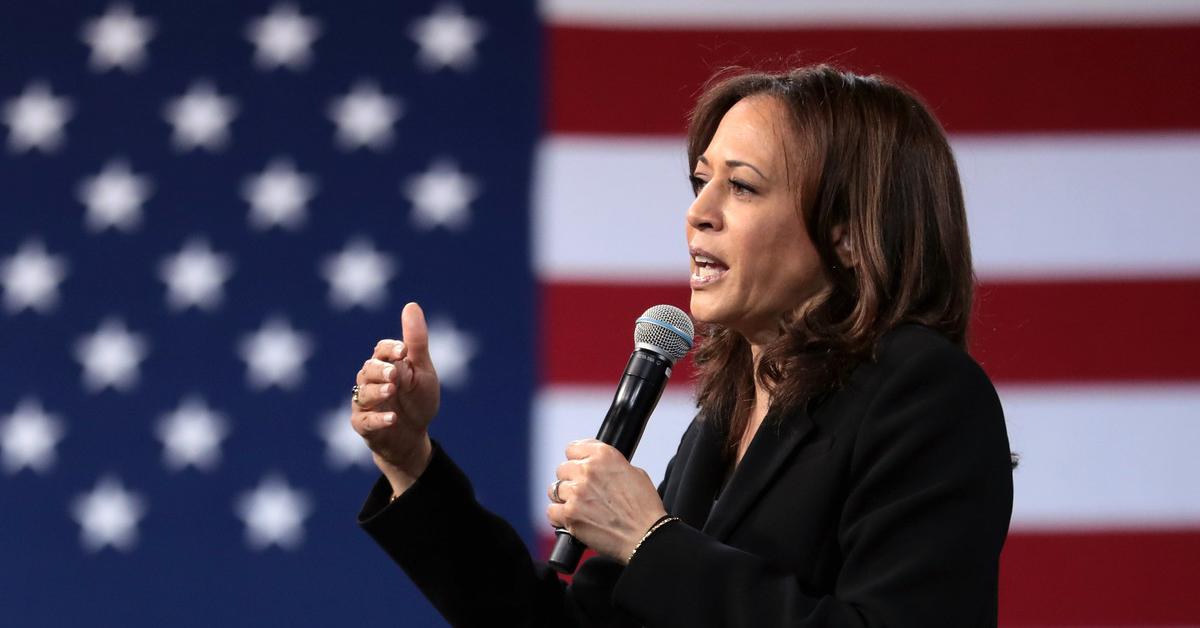Somebody at The Fresno Bee gave us only half of the headline.
“Fresno State free of federal scrutiny” thundered Page 1 (above the fold) of Thursday’s A Section.
For some reason the obvious second half of the headline didn’t make it into the Home edition that I found on my doorstep.
“Hairabedian still waiting for apology.”
The Bee’s story dealt with Title IX, the federal Civil Rights law. I’m dealing with the late Ara Hairabedian, the pioneering Fresno State aquatics coach whose storied career at the university ended on a most unfortunate note. He had this odd notion that killing opportunity for some is no honorable way to create opportunity for others.
Let’s start with The Bee’s story.
“Fresno State is no longer under the nearly 25-year eye of federal Title IX investigators, university President Joseph Castro announced Wednesday morning,” said the story with no byline.
“In a meeting with The Bee’s editorial board, Castro said Fresno State got word Tuesday that the federal Office for Civil Rights concluded its case over gender equity, mostly in athletics, against the university.
“The university had to meet 45 conditions, and Castro said that was done by 2014. Rep. Jim Costa, D-Fresno, helped expedite the review by the civil rights office to bring Fresno State’s case to an end.”
Hairabedian died in September 2004. He would have loved the timeline described in those three paragraphs. It took a quarter-century for the feds to absolve Fresno State of its sins. We built the transcontinental railroad in less time. Then, when it looked like Fresno State had finally toed the line in proper fashion, the feds took another two years to make sure all the I’s were dotted and T’s crossed. And when the Kafkaesque review was finally done, we’re told this constitutes a government in “expedite” mode.
The Bee article proceeded to remind us of many details from Fresno State’s Title IX saga.
Title IX, of course, is part of the Education Amendments of 1972. It prohibits discrimination on the basis of sex in any federally funded education program or activity.
Title IX was part of an effort to fill what was perceived as holes in the 1964 Civil Rights Act. The 1964 Civil Rights Act was part of an effort to fill what was perceived as holes in post-Civil War civil rights legislation. The Civil War was part of an effort to fill what was perceived as holes in the Constitution that emerged from Philadelphia in 1787.
Americans, independent thinkers that we are, will always disagree about the meaning of liberty and equality.
It took a while after President Richard Nixon signed the Education Amendments into law, but Title IX eventually made a big splash in the world of collegiate athletics.
Anyone my age (I was born in 1950) or older knows that, back in the day, boys in high school had a lot more options in athletics than the girls. The same held true in college.
Why? That’s a question we’ll never answer definitively. And, for our purposes, it doesn’t matter. It’s enough to simply note that, at Fresno State in the late 20th century, the long and powerful arm of government combined with the steely commitment of local activists to propel Fresno State on a path toward equal opportunity for male and female students full of athletic drive.
Who could argue with that? No one, of course. But what does equality in this context mean? Oh, heavens, did the pursuit of that answer stir up a hornet’s nest. The Bee on Thursday did an admirable job of summarizing a story that touches on just about every First Principle in the American storyline. But there just isn’t enough newsprint to hit every dramatic twist.
Fresno State ended up getting sued periodically, and seemed to lose every court case in the most ignominious fashion.
“The university spent years scrubbing itself clean of the debacle,” The Bee wrote, “even reshuffling the offices of athletics department officials to provide more equity. Men’s programs like wrestling, water polo and soccer were eliminated as the university sought to balance offerings between men’s and women’s sports.”
This is where Coach Hairabedian enters the story, even though The Bee doesn’t mention him by name.
Ara Hairabedian was born on Aug. 18, 1927 in Los Angeles to Kunaz and Zepure Hairabedian (these details come from Fresno State’s Armenian Studies Program and collegeswimming.com). He was the youngest of three sons.
Hairabedian was a true student-athlete. He played football and gymnastics at Roosevelt High School in L.A. Then it was football and wrestling at Los Angeles City College. Then it was gymnastics, boxing, badminton and track and field in the Army. Finally, it was gymnastics (All-American, team captain) at USC.
Along the way, there was an undergraduate degree (USC), a master’s degree (Penn State) and a doctorate (Stanford).
Hairabedian came to Fresno State as teacher and coach in 1953. He was a mere 26 years old and, in many ways, the school was just as young.
Yes, Fresno State College (as it was then called) was 42 years old when Hairabedian got there. But the campus for most of those decades was located at the corner of Van Ness and McKinley avenues (current home of Fresno City College). Fresno State in 1953 was still settling into its new digs out in the sticks – Cedar and Shaw avenues, far to the north of traditional Fresno.
Imagine what it was like for someone as smart and energetic and ambitious as Hairabedian to step onto that dusty Fresno State campus in the late summer of 1953.
World War I – that bloody destroyer of empires, among them the genocidal Ottoman Empire – was a mere 35 years in the rearview mirror.
The Great Depression – a decade-long economic and social crisis that threatened to destroy by revolution what Lincoln called “the last best hope of earth” – had ended just 12 years earlier.
World War II – 50 million lives … no, make that 60 million lives … lost forever in order to stop the madness of statehood based on racial or ethnic superiority – had concluded in Tokyo Bay just eight years earlier.
The Cold War – the supreme global test pitting a ruthless utopianism against an imperfect but forever striving republic – was at its hottest.
All of this history made Hairabedian the young man he was in mid-1953. He had to have greeted his first Fresno State class for the first time with a mixture of high idealism and unbending skepticism. He knew America was great. He knew we’re a fallen people.
So, Ara Hairabedian in that fall semester 1953 got busy helping a small army of administrators, professors, coaches and students turn the new campus into an engine of progress.
He was a physical education instructor and assistant football coach in that first year. He started the Fresno State swimming program in 1954. He started the water polo program in 1958. He stopped coaching in 1977 and retired in 1993.
However, wrote Fresno State Professor Barlow Der Mugrdechian in his obituary of Hairabedian, the old coach “was frequently back teaching his beloved swimming courses.”
(Full disclosure – Hairabedian taught my two daughters and son how to swim. He was no-nonsense. He did a great job. My kids very much wanted to earn his praise.)
Then came the years of Title IX. How to move fast toward equality in men’s and women’s athletics when money is tight? To a large degree, Fresno State did it by cutting men’s sports and reallocating limited resources.
Men’s swimming and men’s water polo were killed.
This did not sit well with Hairabedian. He wasn’t alone, of course. But most people who couldn’t fathom the logic of denying opportunity to some in the name of equality for others held their tongues. Not Coach Hairabedian.
“I suppose what made Fresno State softball No. 1 was the fact that they had their own secretary in a separate office,” Hairabedian wrote in a column published in The NCAA News in 1997, the 25th anniversary of Title IX. “Or perhaps it was because the men’s water polo team was dropped, or perhaps because the men’s swimming team was dropped to get gender equity?
“Let us not forget that these men’s teams no longer exist at Fresno State. We never seem to mention who gets trampled on to achieve this so-called equity. Numerical percentages do not make things equal.
“We continue to tear down men’s programs for numerical equity. Recently at California State University, Northridge, more men’s programs were dropped.
“Water polo and swimming are practiced in most high schools throughout the Valley, but the young men who participate in these sports cannot continue athletics competition at Fresno State. Where’s the equity?
“The victims of Title IX are the Olympic sports for men who never did anything against women’s sports. The national problem has been college presidents, athletics directors and some women who interpret that equity is best achieved by eliminating certain men’s sports.
“Whose civil rights are being violated now?”
It’s hard in any society to go against the grain. But it’s especially hard in a democracy where right and wrong are determined by a majority that can easily slip into a tyranny. Hairabedian was a most unpopular man at Fresno State when the Title IX war hit its stride.
Then came the final blow. The university elite decided Hairabedian’s office must be given to someone else. It was all part of the Title IX sprint toward justice. One thing led to another, and pretty soon Hairabedian learned that his office stuff had been thrown into the hallway.
Some said the stuff had been “placed” in the hallway. Same thing. Hairabedian had been kicked out – an enemy of the people.
Imagine that. The Ara Hairabedian of 1953, a man tempered and ennobled by so much world history, was found to be unworthy by the willful generation that followed him.
I talked to Hairabedian about these issues. All of The Bee sports reporters from that era did, as well. The idealist in Hairabedian was deeply hurt by what he saw as betrayal, by colleagues and the institution he had served so loyally for four decades. The skeptic in Hairabedian knew human nature all too well.
So, after all these years, the feds’ Title IX minions are going home.
“I think a lot of those issues, you know, happened several years ago,” Trisha Ford, Fresno State’s fourth-year softball coach, told The Bee. “We’re moving forward.”
She makes the American Experiment sound so easy.
Coach Hairabedian – thank you.










